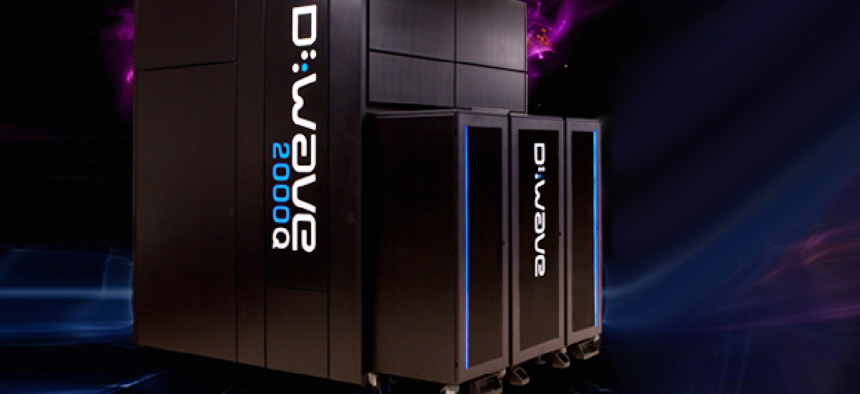Cybersecurity firm buys next-gen quantum machine

Temporal Defense Systems plans to use the D-Wave 2000Q to solve complex cybersecurity problems affecting governments and commercial enterprises.
Quantum computer maker D-Wave Systems on Jan. 24 announced commercial availability of its D-Wave 2000Q quantum machine -- as well as its first customer.
The new system provides a big step toward production applications in optimization, cybersecurity, machine learning and sampling, the company said.
The 2000Q doubles the number of qubits over the previous generation D-Wave 2X™ system and introduces control features that allow users to tune the quantum computational process to solve problems faster. According to the 2000Q’s preview announcement in September 2016, the new features have yielded performance improvements of up to 1,000 times over the D-Wave 2X system, the machines currently installed at Lockheed Martin and NASA Ames Research Center.
"D-Wave's leap from 1000 qubits to 2000 qubits is a major technical achievement and an important advance for the emerging field of quantum computing," said Earl Joseph, IDC program vice president for high performance computing. "The new D-Wave 2000Q system should be even more interesting to researchers and application developers who want to explore this revolutionary new approach to computing."
The first 2000Q was ordered by Temporal Defense Systems Inc., which plans to use the machine to solve complex cybersecurity problems affecting governments and commercial enterprises.
This technology will allow TDS’ cybersecurity products to provide real-time security-level ratings, device-to-device authentication, identification of long-term persistent threats and detection and prevention of insider threats before network compromise and data theft occurs, D-Wave officials said.
D-Wave systems use an approach called “simulated annealing” that iteratively refines complex calculations so that a probable solution can be reached rapidly. That approach makes them systems are naturally geared to a class of calculations called optimization problems. The 2000Q includes a new anneal offsets control feature that lets users tune the annealing of individual qubits. Combined with a faster annealing time over previous D-Wave systems, problems can be solved more efficiently, improving application performance, the company said.
‘The introduction of post-quantum cryptography algorithms and the capability to solve complex computational problems … will aid in improving the security of constantly changing operational networks," said D-Wave International President Bo Ewald. "The intent is to introduce an entirely new approach to existing and emerging cybersecurity challenges impacted by the volume, sophistication and complexity of modern attack methodologies."
The D-Wave 2000Q system can be integrated into standard data centers, high-performance computing environments, as well as private and public clouds, the company said. Systems are also accessible online through an application programming interface to D-Wave’s hosted cloud environment.
The company also recently announced open source access to its quantum software tools so that developers can build higher-level tools and applications leveraging the D-Wave quantum systems without the need to understand the complex physics of quantum computers.






